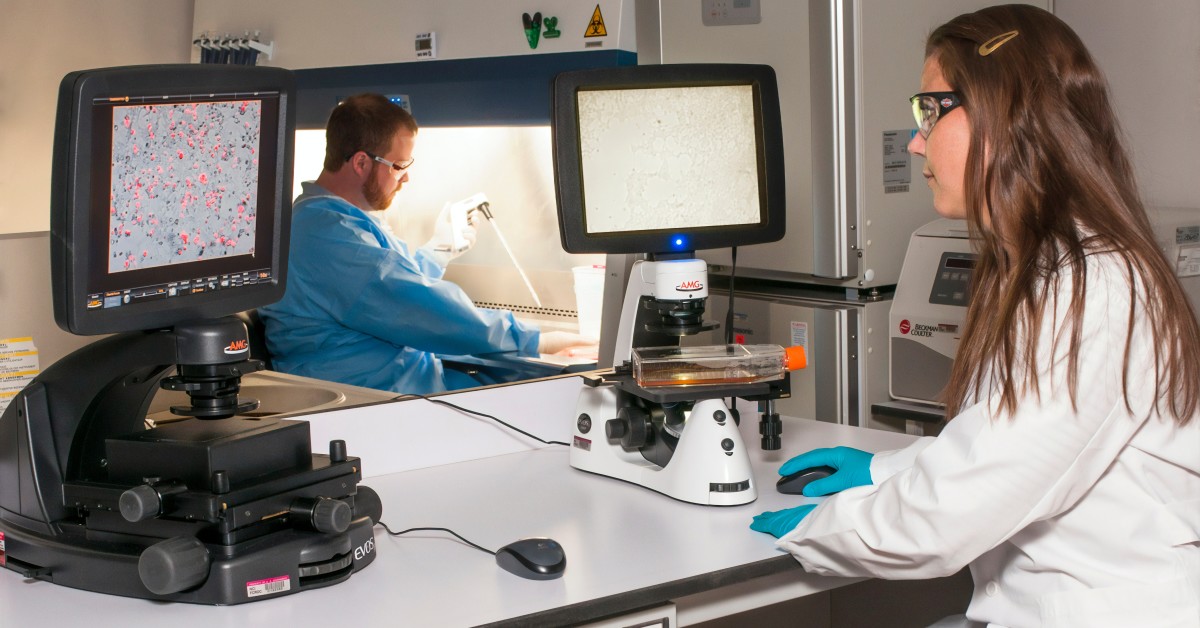
Health Informatics vs. Biomedical Informatics [Difference Explained]
Some schools and employers use the terms health informatics and [...]
![Health Informatics vs. Health Analytics [Difference Explained]](https://resources.noodle.com/wp-content/uploads/2023/11/ani-kolleshi-7jjnJ-QA9fY-unsplash-1024x536.jpg)
The healthcare industry generates billions of gigabytes of digital information each year, and multiple disciplines have evolved around that data. The digitization of medical records management has even prompted the creation of new job titles, including EMR or EHR specialist and health information management technician.
As the volume of data created by the healthcare industry grew, healthcare networks and insurance companies began to seek ways to harness the power of health data. They created new roles, like health information technician and health data scientist.
Informatics and data analytics aren’t technically new disciplines—both have been around since the 1960s—but their application to Big Data in a healthcare landscape has changed. Both fields are still evolving. That means some employers treat health analytics and health information management as the same discipline, and many don’t draw a distinction between health informatics vs. health analytics. In the healthcare world, the lines dividing informatics, data science, analytics, information management, and IT can be frustratingly vague.
The same is true in academia. That makes choosing between a master’s in health informatics and a master’s in health analytics difficult. Some colleges and universities offer either a Master of Science in Health Informatics (MSHI) or a Master of Science in Health Analytics (MSHA). Others offer both. Some offer data analytics as an MSHI concentration, while others roll their analytics programs into health data science programs.
In this article, we explore health informatics vs. health analytics. Even so, the most important thing you can do is look beyond degree names at individual programs. We’ll summarize some below so you know what to look for, but understanding how these degree pathways differ is just the first step. We’ll cover:
Most sources agree there’s a difference between informatics and analytics, but there’s little consensus about how they differ. The American Medical Informatics Association draws a hard line between informatics and analytics, asserting that “data analytics involves the actual analysis of the data, and informatics is the application of that information.”
According to nurse and data scientist Angela Laurio, however, “The role of informatics is to implement and integrate health information technology into a healthcare setting to aid the delivery of care” while “analytics seeks to offer insights about the future through forecasting or predictive modeling.” And the American Health Information Management Association defines informatics as “a collaborative activity that involves people, processes, and technologies to produce and use trusted data for better decision making”—suggesting informatics is an umbrella term that includes health analytics.
Here’s what’s certain: both health informaticists and health data analysts use computer systems to collect, optimize, and analyze information. Both can work with data sets that include not only medical records and patient data but also insurance data, research results, and public health statistics. Informatics was traditionally the less technical discipline, but today many professionals in this space use techniques like predictive informatics and machine learning to extract insights from information, much in the same way health analysts and data scientists do.
It would be nice if looking at health informatics and health data analytics master’s degree programs could clear things up, but the ways colleges and universities distinguish between these disciplines are similarly muddy.
Coursework in MSHI and MSHA programs may emphasize business analytics, management fundamentals, or the technical systems informaticists and analysts use.
MSHI students take a mix of classes focused on analytics, IT, business, and healthcare. The University of Pittsburgh‘s online master’s in health informatics curriculum is pretty typical. The UPitt MSHI course list includes:
The University of Pittsburgh’s informatics curriculum looks a lot like Carnegie Mellon University‘s healthcare analytics curriculum, which is also pretty typical. It includes classes like:
Meanwhile, courses in Duke University‘s online master’s in health analytics program are more business-focused. Students take:
You can advance in both informatics and health analytics without a doctoral degree. A PhD program may not give you much of a professional boost unless you plan to go into academia or research.
Health informatics is a broad discipline with many branches. Whether health analytics is one of those branches is up for debate, but it is one of many popular health informatics master’s concentration options.
Common MSHI specializations include:
Most colleges and universities don’t offer concentration options in their health analytics master’s programs. That doesn’t mean, however, the MSHA curriculum is fixed at those schools. Students in many health analytics master’s programs can customize their degrees by choosing electives related to areas of interest like public health, epidemiology, or biomedical informatics.
It’s common for Master of Science in Health Informatics and Master of Science in Health Analytics programs to be structured around working professionals’ needs.
How long it takes to earn a master’s in health informatics varies depending on various factors. Full-time programs may take anywhere from 15 months to two years to complete. Some accelerated one-year MSHI programs are designed for ambitious students who can handle a packed course load and part-time self-paced programs that take three years or more to complete.
Master’s in health analytics programs are similarly variable when it comes to how long it takes to graduate. Full-time programs may last two years—especially if classes are only offered during the fall and spring semesters. Students in MSHA programs that offer courses year-round can graduate in a year or a year-and-a-half if they’re sufficiently motivated.
Rankings can only tell you so much about a master’s program. The best MSHI or MSHA program for you may be the one with the curriculum you find most interesting or the one that fits into your budget.
Some of the top Master of Science in Health Informatics programs are offered by:
There are fewer dedicated master’s in health analytics programs because many schools treat analytics like a concentration or offer data science degrees instead. Some highly ranked schools that offer this degree include:
Given that colleges and universities frequently design MSHI and MSHA programs for working professionals, it should come as no surprise that you can earn both of these degrees online.
Some of the best online health informatics master’s programs are offered by:
Again, there are far fewer online MSHA programs. Some of the best are offered by
The cost of a master’s degree can be shocking—especially if you’re looking at high-profile schools. Consider, however, that education has a major impact on both advancement and earning potential in careers at the intersection of health and information technology.
Most MSHI programs cost between $20,000 and $30,000 in total tuition, not including extras like fees and materials. More expensive programs cost $50,000 and up. It’s unusual for an informatics master’s to cost more than $70,000.
The average cost of a master’s in health analytics is just about the same as the average cost of an informatics master’s, full stop.
The speed at which the healthcare world is generating data isn’t slowing down, so the demand for non-clinical health care professionals with the skills to deal with that data will probably keep growing.
According to the U.S. Bureau of Labor Statistics (BLS), jobs for medical records and health information technicians will be created more quickly than the average for all occupations over the next decade. That doesn’t mean, however, prospects are equally good across all the subdisciplines of informatics. More growth may occur in technical areas like data science while jobs in health IT and EMR management hold steady.
The BLS doesn’t track job growth for health analytics roles specifically, though data collected by the organization do suggest jobs for statisticians will grow much faster than average. Data science jobs are also hot right now and will stay that way as long as healthcare organizations are looking for ways to use medical data to find areas where they can improve efficiency without sacrificing patient care.
Salaries in both informatics and analytics are profoundly affected by title.
Common roles in informatics include:
Common roles for MSHA graduates include:
The best-paying titles in informatics include:
With an MSHA, you could step into most of the roles above or one of these high-paying analytics roles:
Choosing between the MSHI and the MSHA is tricky and will probably only get trickier as technology evolves. The dividing line between informatics and analytics isn’t clear. Both disciplines are becoming more and more like data science. That’s why some colleges, like Tufts University, combine these disciplines into a single degree pathway. Others have transformed their health analytics programs into health data science programs. And, as demonstrated above, some informatics master’s programs are indistinguishable from analytics programs.
The good news is if you’re passionate about improving healthcare with data, there are no bad choices. Whether you have your eye on informatics or analytics, both degrees will support your career goals.
Questions or feedback? Email editor@noodle.com

Some schools and employers use the terms health informatics and [...]

Health informatics is sometimes called biomedical informatics, which sounds a [...]

Informatics and health information management are related healthcare disciplines that [...]

You can't have health informatics without support from health IT. [...]

Nursing informatics is a subdiscipline of informatics that deals exclusively [...]
Categorized as: Health Informatics & Sciences, Nursing & Healthcare